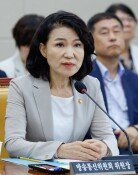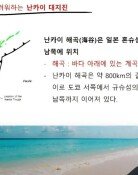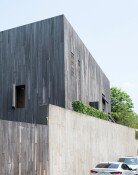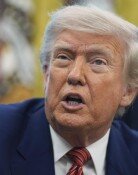Dismantling North Korean Nuclear Programs in Peaceful Way
Dismantling North Korean Nuclear Programs in Peaceful Way
Posted May. 15, 2003 21:35,
South Korean President Roh Moo-hyun and his U.S. counterpart George W. Bush agreed to resolve North Korea`s nuclear weapons issue peacefully within a multinational framework and to consider additional measures if threat posed by the North on the Korean Peninsular increases in a summit meeting at the White House on Thursday morning (Korean time).
The two leasers also postponed the redeployment of American troops from the border with North Korea, which had been a source of controversy. Meanwhile, they decided to continue to offer humanitarian aid to Pyongyang, not linking economic aid to the current political standoff. However, they agreed to ask the Pyongyang government for transparency regarding the distribution of aid supplies to North Korean residents.
On that day, the two leaders saw eye to eye on the position that they will make efforts to dismantle North Korea`s nuclear weapons programs in a peaceful manner based on the cooperation of the international community and the dismantlement should be verified. In a joint statement issued after the end of the summit talks, they said, "Increased threats to peace and stability on the peninsula would require consideration of further steps." "Further steps" are interpreted as including an economic embargo and a military strike.
During the talks, the South Korean president suggested the possibility of linking the resolution of the nuclear issue to aid to the North, saying that according to the unfolding to the North Korean nuclear issues, he would push ahead with inter-Korean exchange and cooperation. When Mr. Roh outlined North Korea policies for peaceful resolution of the issue of the Korean Peninsula, Mr. Bush expressed support for Mr. Roh`s policies and said that eyes were on whether dialogue works in persuading the North to give up its nuclear ambitions.
In the joint statement, Roh and Bush said that they welcomed Beijing`s mediating role in the three-way talks in Beijing with the U.S. and North Korea and that in multilateral talks for the resolution of the North Korean issue, Korean and Japan should participate and other related nations, including Russia, can play a constructive role.
The two leaders also agreed to pursue the redeployment of the U.S. second division stationed in northern Seoul after carefully considering the political, economic, and security conditions in Northeast Asia.
In regards to the economic sector, they reconfirmed a need for strengthening economic cooperation between the two close allies and their position that trade-related pending problems should be resolved through close consultation. They also decided to make common efforts to make the Doha Development Agenda a success. In particular, Bush expressed his willingness to back Roh`s initiative in reform of economic structure and his plan to develop South Korea into a Northeast Asian economic hub.
The South Korean president requested his U.S. counterpart to visit Korea at his convenience, and Bush responded that he was looking forward to visit Korea again.
After completing his activities during a three-day stay in Washington, Roh flew to San Francisco.
Jeong-Hun Kim jnghn@donga.com







